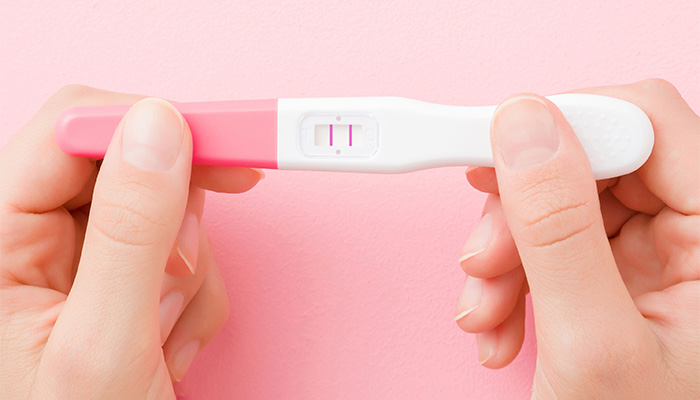
Next Steps After A Positive Pregnancy Test
Whether it’s a plus sign, smiley face, double line or some other symbol, a positive pregnancy test can unlock a plethora of emotions and leave you wondering what steps to take next to support a healthy pregnancy. Follow the list below to learn the most important things you can do to ensure you start your pregnancy as strong as possible.
- Contact your obstetricians. Typically, your first appointment will be scheduled after you have been pregnant for eight weeks. Your obstetrician who can develop a plan based on your needs and guide you through every stage of the pregnancy.
- Calculate your due date and begin tracking your pregnancy. Several websites and apps offer fun, interactive tools for tracking your baby’s development. This can help you know what to expect and provide tips during different stages of your pregnancy. Additionally, at your first doctor appointment, your obstetrician can help you confirm your due date.
- Research your family medical history. Ask your family members if they have any information on pregnancy complications they experienced or any genetic abnormalities your baby may be vulnerable to inheriting.
- Ensure you are up to date on all vaccines. Check your vaccination record for TDAP, which prevents tetanus, diphtheria, and pertussis, and continue to receive your annual flu vaccine.
- Evaluate your overall health. Make any necessary adjustments to your lifestyle to keep your growing baby healthy. This includes:
• Taking prenatal vitamins. You and your baby require higher doses of certain vitamins and minerals. A prenatal vitamin can provide more nutrients.
• Quitting smoking or other tobacco products that expose your baby to toxic chemicals. They also increase your chance of experiencing complications during pregnancy or delivering a baby with birth defects.
• Abstaining from alcohol as this can cause permanent developmental problems for your baby.
• Avoiding undercooked meat, seafood with high mercury content, and any foods high in fat, sugar, and salt.
• Consuming no more than 200 mg of caffeine per day.
• Checking with your doctor about which medications are safe to take during your pregnancy.
• Monitoring your symptoms so you can quickly recognize if something is wrong. - Consider how your job will affect your pregnancy. You should do everything you can to avoid strenuous work and excessive stress while pregnant. If your job involves a high-pressure workload or lifting heavy objects, you should look into fewer hours of work per week or modified responsibilities.
- Enjoy the moment! This is an incredibly special time in your life, so make sure to relax, focus on self-care, and place your pregnancy as your highest priority for the next nine months.
